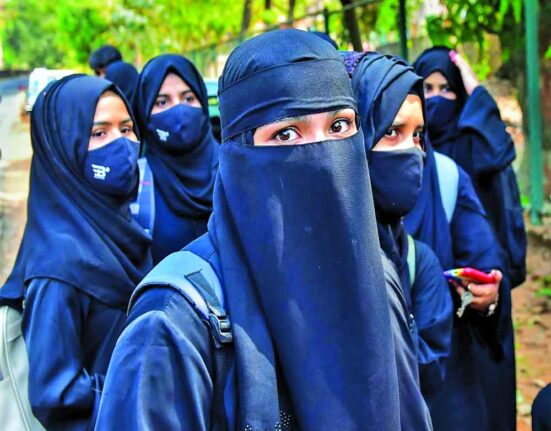Introduction – Importance of Education
The importance of education goes beyond what is learned in Schools or Classrooms. Education is a crucial aspect of personal and societal development that goes beyond what is learned in school or classrooms. It encompasses a continuous process of acquiring knowledge, skills, and values that help individuals to achieve their goals and navigate life’s challenges.
Education is limitless, as it is not bound by age, time, or space. It is a lifelong process that enables individuals to broaden their horizons, think critically, and develop problem-solving skills. Education plays a vital role in personal development by promoting self-awareness and fostering a sense of responsibility towards oneself and others.
Furthermore, education equips individuals with the knowledge and skills needed to pursue their interests and aspirations. It helps to unlock one’s potential, expand career opportunities, and improve one’s quality of life. Education is a key driver of social and economic mobility, enabling individuals from all backgrounds and social classes to access better job opportunities, higher salaries, and a better standard of living.
Education could also be identified as a process of acquiring knowledge, skills, values, and attitudes through various formal and informal methods such as schooling, instruction, training, research, practical experience, teachings from elders, and learning from others. It is a fundamental aspect of human development that helps individuals to understand the world around them, communicate effectively with others, and make informed decisions.
Education is a critical component of human development that provides individuals with the skills, knowledge, and attitudes they need to succeed in life. It is an investment in oneself that can have lifelong benefits and can contribute to a more fulfilling and meaningful life.
Importance of Education in life for several reasons
Firstly, it provides individuals with the knowledge and skills they need to pursue their interests and achieve their goals. Whether it is learning a trade, pursuing a career, or simply broadening one’s horizons, education can help individuals to acquire the skills and knowledge they need to succeed.
Secondly, education can enhance an individual’s social and personal development. It can help individuals to develop critical thinking skills, communicate effectively with others, and develop a sense of social responsibility. Education can also provide individuals with opportunities to engage with people from different backgrounds and cultures, which can broaden their perspectives and enhance their empathy and understanding.
Thirdly, education can have a positive impact on an individual’s health and well-being. Studies have shown that individuals with higher levels of education tend to have better health outcomes, including lower rates of chronic illness and higher life expectancy.
What Education teaches
Education is a very important aspect of every individual’s life. As it helps that person to help identify what’s wrong and what’s right. Moreover with education person is able to acquire basic knowledge. Education could teach a Person many things such as:
- Moral values
- Respecting others
- To take other opinions
- To live in diversity
- Social Behaviour
- Contributing his part for the betterment of Society
What is the Importance of Education for an Individual
Education is an essential aspect of personal and societal development, as it provides individuals with the knowledge, skills, and tools necessary to succeed in life. It plays a critical role in shaping our attitudes, beliefs, and behaviours, and contributes to the growth and progress of society as a whole.
1) Personal Development:
Education is not only important for personal development but also has a significant impact on society as a whole. By providing individuals with the knowledge and skills needed to pursue their goals, education can contribute to the social and economic development of a country. Moreover, education can play a critical role in addressing societal issues such as poverty, inequality, and crime. In this regard, education is not just a personal endeavour but also a responsibility that individuals have towards their communities and society.
Furthermore, education helps individuals to develop a sense of self-awareness and identity. It allows individuals to explore their interests, values, and beliefs, leading to a better understanding of themselves and their place in the world. This self-awareness is essential for personal growth and development, as it enables individuals to make informed decisions and take responsibility for their actions.
2) Professional Development:
Education is also essential for personal growth and development, as it enables individuals to pursue their passions and interests. It provides individuals with the opportunity to explore different subjects and areas of study, leading to a better understanding of the world around them. This personal growth can contribute to a greater sense of purpose and fulfilment in life.
Moreover, education can help individuals to develop critical thinking and problem-solving skills. These skills are essential for navigating the complexities of modern life and can be applied to a wide range of situations, from personal to professional settings. They enable individuals to approach challenges with confidence and creativity, leading to better outcomes and greater success.
3) Societal Development:
Education is particularly important for the empowerment of women and girls, who have historically faced barriers to accessing education. Education can help to break down gender stereotypes and promote gender equality, by providing women and girls with the knowledge and skills necessary to challenge discrimination and advocate for their rights. Educated women are also more likely to have greater control over their lives, make informed decisions about their health and well-being, and participate fully in their communities.
In addition, education plays a crucial role in ensuring public safety and reducing crime. By providing individuals with the skills and knowledge needed to lead successful and productive lives, education can help to prevent crime and reduce recidivism rates. Moreover, education can help to promote positive values and attitudes, such as respect for the law and for others, which are essential for maintaining a stable and peaceful society.
Importance of Education for Personal and Societal Development
Education is a crucial aspect of personal and societal development, providing numerous benefits that contribute to an individual’s well-being and success. Let’s explore some of the key benefits of education in more detail:
1) Improved Job Opportunities and Financial Stability
Education is essential for unlocking better job opportunities and higher salaries. With a good education, individuals are more likely to access well-paying jobs and achieve financial stability. Education provides individuals with the skills and knowledge needed to succeed in their careers, which can lead to higher income and financial independence.
2) Importance of Education for Personal Growth and Development
Education promotes self-awareness, responsibility, and discipline, which are essential for personal growth and development. It provides individuals with the foundation they need to pursue their interests and passions, whether personal or professional. Education fosters critical thinking, problem-solving skills, and creativity, which can contribute to personal success and fulfilment.
3) Social Cohesion and Civic Engagement
Education plays a critical role in reducing inequality, promoting social cohesion, and fostering a more informed and engaged citizenry. It helps individuals to develop a sense of belonging to their community and a willingness to contribute to its growth and development. Education also promotes civic engagement, encouraging individuals to participate in the democratic process and make informed decisions about issues that affect their community.
4) Dignity and Respect in Society
Education provides individuals with dignity and respect in society. It enables individuals to develop a sense of self-worth and self-respect, which can contribute to a positive self-image and a sense of belonging in society. Education also helps to reduce discrimination and promote equality, enabling individuals to be valued for their knowledge and skills rather than their social background or circumstances.
What is the Importance of Education for the overall development of a Country?
Education is a fundamental driver of social and economic development in any country. The benefits of education are manifold, ranging from personal growth and development to societal progress and prosperity. In this article, we will discuss the importance of education for a country, focusing on its role in women’s empowerment, crime prevention, poverty reduction, and social and economic development.
1) Women’s Empowerment
Education is a powerful tool for promoting gender equality and women’s empowerment. It can help women gain the skills and knowledge needed to participate fully in society, including in the workforce, and contribute to their country’s economic and social development. Education can also help women gain access to better healthcare, nutrition, and other resources, leading to improved health outcomes and higher quality of life.
However, many women in developing countries face significant barriers to education, including cultural and societal norms that prioritize boys’ education over girls. By investing in education and prioritizing gender equality, countries can empower women and unlock their full potential, contributing to greater social and economic development.
2) Crime Prevention
Education is also crucial for preventing crime and promoting public safety. It can help individuals develop critical thinking and problem-solving skills, which can contribute to more effective crime prevention strategies. Education can also help individuals develop a sense of responsibility and discipline, reducing the likelihood of criminal behaviour.
Moreover, education can help promote greater social cohesion and reduce conflict within communities, contributing to a safer and more secure society. By investing in education, countries can promote greater public safety and contribute to a more peaceful and stable society.
3) Poverty Reduction
Education is a key driver of poverty reduction, providing individuals with the skills and knowledge needed to secure better-paying jobs and achieve financial stability. Education can also help individuals develop the entrepreneurial skills needed to start and grow businesses, contributing to greater economic growth and development.
Moreover, education can help break the cycle of poverty by enabling individuals to access better healthcare, nutrition, and other resources. By investing in education and promoting greater access to education, countries can reduce poverty and promote greater social and economic development.
4) Social and Economic Development
Education is essential for promoting social and economic development in any country. Education can help individuals gain the skills and knowledge needed to participate fully in society and the workforce, contributing to greater economic growth and development. Moreover, education can help individuals develop the critical thinking, problem-solving, and innovation skills needed to drive technological advancement and innovation.
By investing in education and promoting greater access to education, countries can unlock their citizens’ full potential and contribute to greater social and economic development. Education can also help reduce inequality, promote greater social cohesion, and foster a more informed and engaged citizenry.
Moreover, education is a critical driver of social and economic development in any country. From promoting women’s empowerment to preventing crime, reducing poverty, and driving social and economic development, education plays a vital role in shaping a country’s future. By investing in education and prioritizing greater access to education, countries can unlock their citizens’ full potential and achieve greater prosperity and progress.
To Know about What is Right to Education: Click Here
Frequently Asked Questions on the Importance of Education
Why is education important?
Education is important because it provides individuals with the knowledge and skills necessary to succeed in life. It helps individuals to develop critical thinking, problem-solving, and decision-making skills, which are essential for navigating the complexities of life. Education also provides individuals with access to a wider range of opportunities, including better job prospects, higher earning potential, and improved social mobility.
How does education contribute to economic growth?
Education contributes to economic growth by providing individuals with the skills necessary to participate in the workforce and contribute to the economy. Highly educated individuals are better equipped to drive innovation, create new businesses, and advance their industries. This can lead to increased economic growth, job creation, and overall prosperity.
How does education promote social cohesion and reduce inequality?
Education promotes social cohesion and reduces inequality by providing individuals with equal opportunities to succeed in life regardless of their background or socioeconomic status. In addition, education can also help level the playing field and provide equal opportunities for all, leading to a more just and equitable society.
How does education contribute to public safety and reduce crime?
Education contributes to public safety and reduces crime by providing individuals with the skills and knowledge needed to lead successful and productive lives. Education can help to prevent crime and reduce recidivism rates. in addition, it can also promote positive values and attitudes, such as respect for the law and for others, which are essential for maintaining a stable and peaceful society.
How does education promote human dignity and respect?
Education promotes human dignity and respect by providing individuals with access to knowledge and information. It can help to break down prejudices and stereotypes and promote understanding and tolerance. Moreover, education can also help individuals to develop a sense of purpose and self-worth, leading to greater dignity and respect in society.
![]()





Leave feedback about this